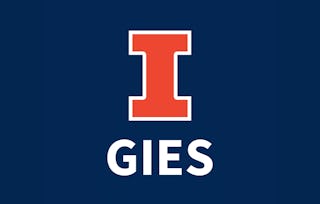We now live in a truly global, interconnected world in which every manager requires a high level of cultural intelligence. In a diverse work environment, a successful leader must understand the cultural backgrounds, beliefs and attitudes of the people around them – or run the risk of failing to achieve the organisation’s goals. This course, via structured learning activities (video lectures, quizzes, discussion prompts, industry interviews and written assessments), will teach you that those with high ‘cultural intelligence’ – are good at spotting cultural differences and adapt their behaviour accordingly. You’ll develop cultural intelligence and sensitivity – key future-focused capabilities required of every leader.

Cultural intelligence: Become a global citizen
Ends soon: Gain next-level skills with Coursera Plus for $199 (regularly $399). Save now.

Cultural intelligence: Become a global citizen
This course is part of Adapting: Career Development Specialization

Instructor: Professor Fei Guo
12,431 already enrolled
Included with
(222 reviews)
Skills you'll gain
- Diversity Awareness
- Systems Thinking
- Cross-Functional Team Leadership
- Workplace inclusivity
- Business Ethics
- Economics
- Intercultural Competence
- International Relations
- Global Marketing
- Business Leadership
- Cognitive flexibility
- Cultural Diversity
- Diversity and Inclusion
- Professionalism
- Cultural Sensitivity
- Collaboration
- Organizational Leadership
- Culture
Details to know

Add to your LinkedIn profile
12 assignments
See how employees at top companies are mastering in-demand skills

Build your subject-matter expertise
- Learn new concepts from industry experts
- Gain a foundational understanding of a subject or tool
- Develop job-relevant skills with hands-on projects
- Earn a shareable career certificate

There are 6 modules in this course
We are living in an increasingly globalised world, with growing flows of capital/business and people across national boundaries. What are the current state of development of global migration of capital and people? What are the important implications to businesses, communities and individuals? This week you will be introduced to the recent development in global migration of capital and people; the contributing factors to the changes over time; and consequences of global migration of capital and people. You will start by review the contemporary literature in these areas. You will also be exposed to the theoretical perspectives such as institutional approach and structural inequality framework in understanding global migration of business and people.
What's included
6 videos4 readings2 assignments
Our communities and workplaces have become more diverse in terms of gender, age, ethnicity, religion, and country of origin. How do you perceive diversity in your communities and workplaces? Does diversity mean different? This week you will be introduced the concepts of affinities in addition to diversities. You will have the opportunities to examine the commonalities that diverse groups of people share in their daily life and in workplaces. You will also apply the theoretical framework “cultural capital” (in Pierre Bourdieu’s “The Forms of Capital”) in understanding how diversity contribute to the societies and businesses.
What's included
4 videos1 reading2 assignments
Employees and business leaders nowadays are constantly interacting with people and stakeholders from diverse backgrounds. The cultural inclusion approach is adopted by many businesses and organizations to promote equity and fairness. What is your understanding of cultural diversity? Is diversity inclusion approach only for promoting the rights and opportunities for those who are disadvantaged? Are you aware of the values and benefits that people from diverse cultural backgrounds could bring to an organization? Do you know how to develop your cultural intelligence (CQ)? This week you will learn the importance of cultural intelligence (CQ) and the steps that you will need to take to develop your cultural strategic thinking and to cultivate your behavioural cultural intelligence.
What's included
4 videos2 readings2 assignments
Being culturally intelligent is a key future-focused capability for today’s business leaders. In addition to developing their own cultural intelligence, business leaders need to learn how to leverage their cultural intelligence to effectively motivate and lead others in workplaces. This week you will learn the approaches and programs through which you apply cultural intelligence to effectively manage and lead culturally diverse teams or effectively interact with culturally diverse stakeholders. You will develop the competencies of evaluating cultural environments and strategizing responses accordingly. Attention will also be on the approach and framework for developing high-performing global teams
What's included
4 videos1 reading2 assignments
Being a citizen of our globalised and interconnected world could also face a series of challenges. Traditional institutions, such as the state, community, workplace, and family have all been affected one way or another by the global forces. The boundaries of nation states become increasing blurry and weakened with increasing dominance of transnational business activities and migration of people. For many, traditional family structures are disrupted and family members scattered around globe. All these changes affect individual behaviour and the interactions with each other. This week you will examine the major challenges brought about by globalised forces and develop the awareness of these challenges in a range of institutional settings.
What's included
4 videos1 reading2 assignments
Cultural intelligence (CQ) is a competitive advantage that current and future business leaders need to acquire and cultivate. By consciously or unconsciously practicing and applying CQ in your workplace and daily life, you will become a true global citizen and business leader in a globalized world. In the final week of this course, you will apply all the knowledge we have learned so far and focus on some practical exercises on how to develop the mindset that is globally oriented and culturally sensitive. You will also further develop some skills in translating your individual global mindset to ethical conducts of businesses and organizations.
What's included
4 videos1 reading2 assignments
Earn a career certificate
Add this credential to your LinkedIn profile, resume, or CV. Share it on social media and in your performance review.
Instructor

Offered by
Explore more from Leadership and Management
 Status: Preview
Status: PreviewUniversity of California, Irvine
 Status: Free Trial
Status: Free TrialUniversity of Illinois Urbana-Champaign
 Status: Free Trial
Status: Free TrialUniversity of Illinois Urbana-Champaign
 Status: Free Trial
Status: Free TrialUniversity of Michigan
Why people choose Coursera for their career




Learner reviews
222 reviews
- 5 stars
84.68%
- 4 stars
10.81%
- 3 stars
2.70%
- 2 stars
0.90%
- 1 star
0.90%
Showing 3 of 222
Reviewed on Sep 25, 2022
From an intercultural perspective, the content was enriching and backed up by theories and research, which I appreciate. I recommend it to anyone dealing with multicultural communities.
Reviewed on Jun 13, 2020
Nice course to enlarge your horizons and build cultural intelligence
Reviewed on Oct 25, 2022
This course is very important to my life i learn to be a global citizen and what it take to be one. Its a good course that it teaches us how to interact with people from different diversities
Frequently asked questions
To access the course materials, assignments and to earn a Certificate, you will need to purchase the Certificate experience when you enroll in a course. You can try a Free Trial instead, or apply for Financial Aid. The course may offer 'Full Course, No Certificate' instead. This option lets you see all course materials, submit required assessments, and get a final grade. This also means that you will not be able to purchase a Certificate experience.
When you enroll in the course, you get access to all of the courses in the Specialization, and you earn a certificate when you complete the work. Your electronic Certificate will be added to your Accomplishments page - from there, you can print your Certificate or add it to your LinkedIn profile.
Yes. In select learning programs, you can apply for financial aid or a scholarship if you can’t afford the enrollment fee. If fin aid or scholarship is available for your learning program selection, you’ll find a link to apply on the description page.
More questions
Financial aid available,





